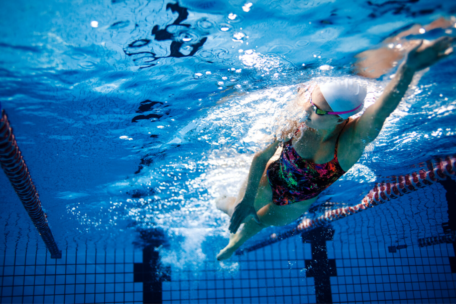Optimising your athletic performance using your menstrual cycle
The effect of the menstrual cycle on athletic performance is being increasingly recognised as a key consideration for women’s sport. Menstrual-related symptoms are highly prevalent and highly individualised in female athletes. For many athletes, the effects of their menstrual cycle can impact various aspects of their training, competition, and daily life.
The menstrual cycle has been suggested to affect physical performance due to various mechanisms such as altered thermoregulation, substrate metabolism, muscle activation and body composition.
However, the current research is heterogenic and has been performed in different types of athletic groups (i.e., amateur vs elite) and within different sports. The impact of the menstrual cycle and hormone influences can also vary from athlete to athlete. As a result, there still needs to be a significant amount of research done in this area.
The importance of estrogen and progesterone
It has been suggested that the hormonal fluctuations of estrogen and progesterone during the menstrual cycle have implications on exercise physiology and athletic performance. This is due to their effect on numerous cardiovascular, respiratory, metabolic and thermoregulatory parameters.
Estrogen
|
Progesterone
|
Proposed impact on performance
Please note: While research continues to grow in this area, each athlete may perceive their performance and training to be different in each phase and may not necessarily experience all of these impacts at the same level. This is why tracking your menstrual cycle and documenting how you think, feel, train, and perform at different stages is so important.
Follicular phase (Day 1- 14)
- Variable changes in aerobic and endurance performance
- Possible increase in perceived performance
- Possible increased strength with 1RM testing
Ovulation (Day 14-16)
- Enhanced anaerobic performance
- Possible enhanced strength and power
- Risk of decreased endurance performance
- Risk of poor technique due to reduced proprioception
Luteal phase (Day 15-28)
- Enhanced endurance
- Greater ventilation
- Increased resting core body temperature (thermoregulatory disadvantage during endurance efforts)
- Increased body mass due to fluid retention
- Decreased anaerobic performance
- Possible risk of Premenstrual symptoms diminish performance in the late luteal phase
When should I seek medical advice about my menstrual cycle?
We recommend you seek the advice of a specialised women’s health practitioner at Ignite Athlete if you experience any of the following:
- Significant changes in the pattern of your period
- The absence of a period
- Heavy bleeding (e.g., flooding of pads, changing pad or tampon every hour)
- Large clots present during your period
- Severe pain that impacts on your daily activities
- Vomiting or nausea
- Blood in urine or bowel motion
- Urinary incontinence
You may also like to book an appointment with a GP to learn more about how to track and manage your menstrual cycle.
If you have concerns about your menstrual cycle impacting your life and athletic performance, we encourage you to get in touch with us. We have a network of specialised General Practitioners, gynaecologists, and fertility specialists across Australia who will be more than happy to speak with you and discuss your individual circumstances.
With over 50 dedicated specialists across 70 consulting locations throughout the country, our friendly staff can help you choose the right medical professional to guide you and help you achieve your sporting goals. Contact us now.
Additional Resources
- Understanding the menstrual cycle
- Tracking your menstrual cycle
- Menstrual Cycle Effects on Exercise-Induced Fatigability
- The Impact of Menstrual Cycle Phase on Athletes’ Performance: A Narrative Review
- How the menstrual cycle and menstruation affect sporting performance: experiences and perceptions of elite female rugby players


